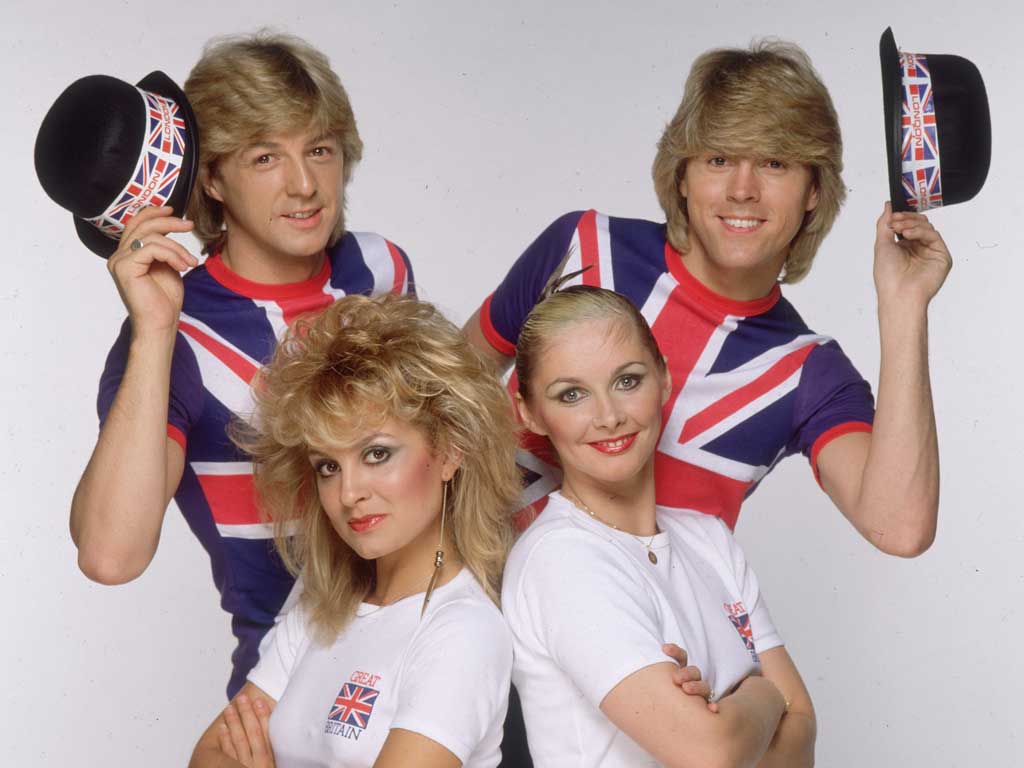Where are our Eurovision heroes now?
Fortunes have been mixed for the British entries over the past 45 years

The idea that kitsch and absurd costumes can unify a continent for a few hours got its annual outing last night. The Eurovision Song Contest's setting was the £85m Crystal Hall concert venue in Baku, Azerbaijan, a country more familiar to Amnesty International than the music press.
The opening number was Britain's Engelbert Humperdinck, aged 76, and 42 years after his last top 10 hit, singing "Love Will Set You Free".
In recent years, the UK has performed fairly dismally, but it wasn't always so. Some groups, formed solely to represent Britain, are still enjoying success. Only last week, Bucks Fizz announced a new album and comeback tour, while others have seen continued success, albeit not always musically, over the years. The Independent on Sunday takes a look at some of our most memorable entries and asks where are they now.
1967: Sandie Shaw
"Puppet on a String"
Eurovision position 1.
The Dagenham girl soon became one of the most successful British female singers of her generation. So it was inevitable she would eventually become... a psychotherapist. Shaw qualified as a psychotherapist in 1994 and opened the Arts Clinic, providing psychological healthcare to those in the arts industry.
1968: Lulu
"Boom Bang-a-Bang"
Eurovision position Joint 1.
The little lady with the big voice has had a successful career spanning four decades. She now appears on television shows such as Strictly Come Dancing and Absolutely Fabulous.
1976: Brotherhood of Man
"Save Your Kisses for Me"
Eurovision position 1.
Topping 15 million worldwide record sales is a considerable achievement for a band initially made up of session musicians. In later years, they were dogged by Abba comparisons and chart decline. Today they are popular on the nostalgia and gay circuits.
1981: Bucks Fizz
"Making Your Mind Up"
Eurovision position 1.
Formed solely for the contest, Bucks Fizz achieved that rare feat: becoming more than a one-hit Eurovision wonder. With four albums, they had a great deal of material to draw upon and, like many bands of late, reunited. This month, their 30th-anniversary year, the band announced a new album and tour.
1991: Samantha Janus
"A Message to Your Heart"
Eurovision position 10.
Actress, singer and director Samantha Womack (née Janus) made a modest dent at Eurovision at the age of 18. She's since become best known for her role as Ronnie Branning in EastEnders.
1993: Sonia
"Better the Devil You Know"
Eurovision position 2.
Her singing career, like many British pop stars of that era, was launched by the songwriting trio Stock Aitken Waterman. Though life has been quieter for Sonia than other Eurovision entrants, her debut album was reissued last year.
1997: Katrina and the Waves
"Love Shine a Light"
Eurovision position 1.
Best known for their 1985 hit "Walking on Sunshine", the Cambridge band would surprisingly achieve success 12 years later at Eurovision after years of inactivity. Now 52, Katrina Leskanich has a successful solo career.
2003: Jemini
"Cry Baby"
Eurovision position 26.
The Liverpudlian pop/dance duo went down in history as Britain's most spectacular failure in the contest, ending up with nul point. Gemma Abbey found work in a car showroom; Chris Cromby worked in a clothes shop and is reportedly trying to get a solo career off the ground.
Join our commenting forum
Join thought-provoking conversations, follow other Independent readers and see their replies
Comments
Bookmark popover
Removed from bookmarks